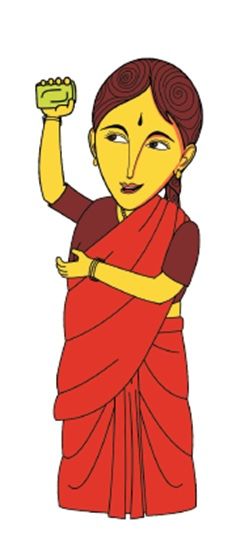

Which works best to get people to change their behaviour—emotion or rationality? Rationally speaking, most Mums in India know perfectly well that it’s good for the family’s health to wash your hands with soap. But the problem is very few actually do do so. So we came up with a new approach, one that harnesses the power of ancient emotional drivers of behaviour.
Working in 14 villages in Andhra Pradesh, South India, we designed a handwashing programme that used disgust, nurture and social norms instead of lectures about death and disease. Our Bangalore-based creative agency, Centre of Gravity, crafted a beautiful animated film starring a go-ahead Mom called SuperAmma. Appealing and aspirational, she loved and cared for her son, taught him good manners and saw him grow up to be a doctor. The film was so powerful it made audiences (and me) cry (see it at www.superAmma.org). It worked on mothers to create an emotional association between handwashing and their desire to nurture their children—seeing them grow strong and successful—and grateful to their Mamas.
We targeted a different emotional response at kids—disgust. In skits played out in schools a nasty character called Laddu Lingam made filthy sweets of mud and nose goo with unwashed hands. Though the kids laughed, the disgust they felt created a powerful reminder of the need to wash hands. To create the impression that handwashing with soap was a social norm, our extension agents got moms to pledge to wash hands with soap in public, and then their names went up on a board in the middle of the village. Soon almost everyone signed up.
So what happened? The results of our trial—just out in Lancet Global Health—surprised even us. Rates of handwashing with soap that had hovered around at about 3% went up to over 30% in the seven villages that had the handwashing programme (whilst staying low in the villages with no programme). Even a year after the programme 29% of people - men women and children, were still washing hands with soap at key times.
We think the lesson is clear. Preaching about health is probably not the best way to change behaviour. Instead, we should harness the power of ancient evolved emotions like disgust and nurture and the desire to fit in (affiliation).
Lancet article: http://image.thelancet.com/journals/langlo/article/PIIS2214-109X(13)701…
SuperAmma was designed and implemented by Centre of Gravity, St John’s Research Institute, Mudra Max and LSHTM and funded by the Wellcome Trust and SHARE.

